About Us
Library Carpentry develops lessons and teaches workshops for and with people working in library- and information-related roles. Our goal is to create an on-ramp to empower this community to use software and data in their own work as well as be advocates for and train others in efficient, effective and reproducible data and software practices.
Originally based on lessons developed by The Carpentries, Library Carpentry has evolved, and aims to help people working in library- and information-related roles work more efficiently, and potentially teach the skills they have learned to colleagues, students, and researchers. Training takes place in face-to-face workshops. Lesson materials are all available online, under a CC BY license, for self-directed study or for adaptation and re-use.
Who owns Library Carpentry?
Library Carpentry was originally developed with support of the Software Sustainability Institute and is now being incubated as a Lesson Program with The Carpentries. Like Software Carpentry and Data Carpentry it will maintain its own lessons and Curriculum Advisory Committee.
What is a Library Carpentry Workshop?
An official Library Carpentry workshop must include our core lessons. All workshops that are reported to Library Carpentry are listed in the ‘Upcoming Workshops’ section of this site and range from 1-day to multi-day. See What constitutes a Library Carpentry workshop? and Seventy-One Workshops… and Counting for further information. Ideally attendees will bring their own laptops to workshops so that skills learnt can be replicated after the workshop without the need for any additional setup or software installation.
Workshops are run by a team. Ideally this will consist of:
- a Host, who is the principal local contact for the workshop and who negotiates with Instructors about what lessons will be taught
- at least one Certified Carpentries Instructor and other Instructors who teach the lessons and lead the practical exercises
- Helpers who provide assistance to learners during practical sessions
- Workshops can be any size but it is recommended that the helper-to-learners ratio not exceed 1:8.
To maintain the quality of Library Carpentry workshops, it is highly recommended that a Carpentries-certified instructor be present at each workshop. For more about Carpentries instructor training, see this curriculum.
What is a Lesson?
A Library Carpentry lesson is a set of training materials that can be used to run hands-on training or as self-directed learning. Each lesson comprises 3-4 sections, is interactive, works across Windows, Mac OS X, and Linux operating systems (with all setup instructions included) and has a combination of follow-the-leader sections and exercises that map to library practices and workflows. Lessons introduce software and data concepts relevant to people working in library- and information-related roles and are based on open source software. Data used in exercises is library-related, e.g. bibliographic data.
Who is an instructor?
Official Library Carpentry workshops must have at least one certified instructor present running the workshops. To be a Library Carpentry instructor, and instructor for other Carpentries lesson organizations, you must undertake and complete The Carpentries Instructor Training. Instructors must be prepared to observe The Carpentries Code of Conduct in workshops. Library Carpentry lesson materials are freely available under a permissive open license and available for the wider community to use for Library Carpentry-based workshops.
How is Library Carpentry Managed?
Library Carpentry was developed and is now maintained by volunteers. All activity is voluntary. An interim governance group has been formed to lead the project. For more on that, see this blog post. Decisions are shared via the governance repository on GitHub and/or the blog. Management and maintenance are distributed and also overseen by the Curriculum Advisory Committee. Each lesson is maintained by one of more individuals responsible for co-ordinating maintenance of that lesson. Changes to lessons are managed using GitHub Issues and Pull Requests. Announcements and initial discussion take place in our chatroom and/or listserv. New members are welcome to join the community.
